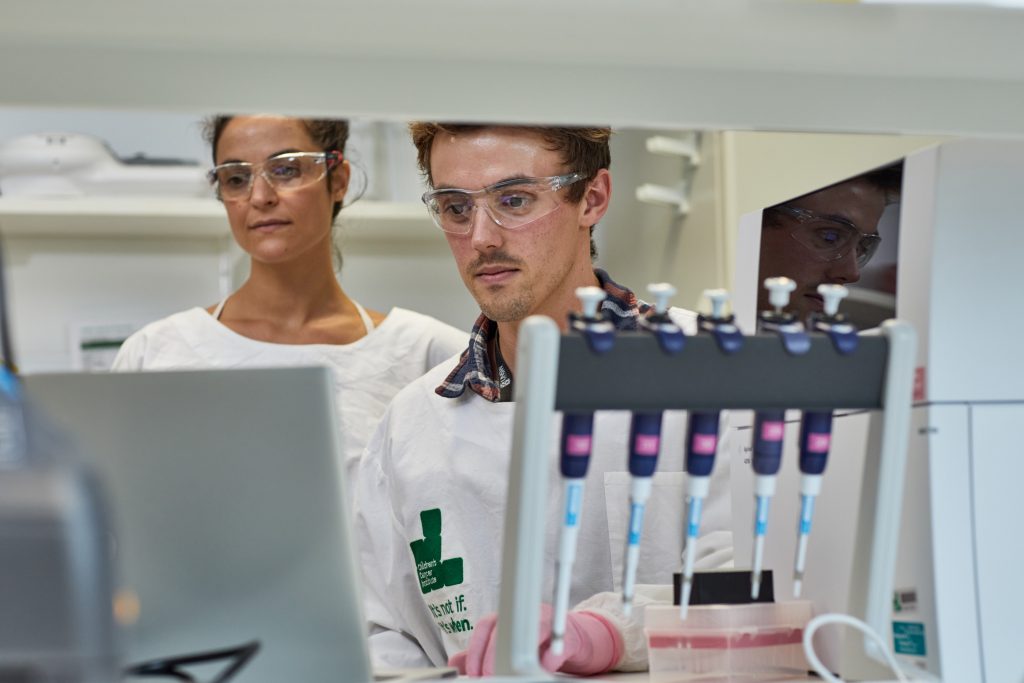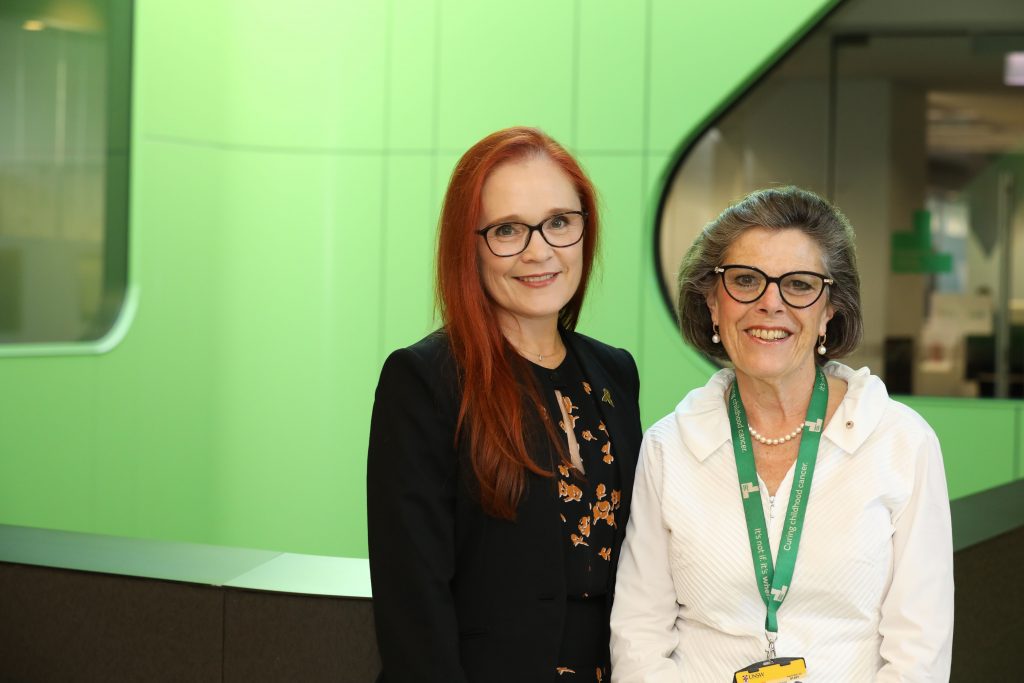ZERO ramps up
The highly successful Zero Childhood Cancer program (ZERO) is opening its doors to all children with cancer.
The world-leading ZERO program to reduce deaths from childhood cancers has been so successful that it is now being ramped up to help more than 6 times the number of children. Previously available only to children with cancers with less than a 30% chance of survival, the program will be available to all Australian children with cancer by the end of 2023.
“It’s an extraordinary program to be part of and one that’s exceeded all our expectations,” says Professor Michelle Haber AM, Executive Director of the Children’s Cancer Institute. “I do see this as the way of the future for all cancer patients and probably for other diseases.”
In ZERO, each individual tumour is genetically tested to determine what is driving that specific cancer. A personalised treatment plan is then developed for each child, involving drugs targeting their tumour’s specific genetic changes.
“We have been astounded at the benefits that we’ve been able to demonstrate,” Haber says. “Seventy percent of the first 250 children enrolled in the program who received their recommended personalised treatment plan went into complete remission, partial remission or their tumour stabilised. And this is for patients who otherwise had only a 30% chance of survival.”

Photo supplied by the Zero Childhood Cancer Program
Funding boost
Achieving widespread international acclaim, the program received a $54.8 million funding injection from the Australian Government’s Medical Research Future Fund in 2020, and more than $12 million from the Minderoo Foundation. NSW Health has contributed $1 million towards the enrolment and analysis of children with brain tumours.
Led by scientists at Children’s Cancer Institute in partnership with clinicians at the Kids Cancer Centre, Sydney Children’s Hospital, ZERO involves 23 national and international research partners, as well as all 9 children’s hospitals in Australia.
According to Zero Childhood Cancer Program Leader Associate Professor Ness Tyrrell, as well as dramatically improving survival rates, the personalised treatment recommendations have many other benefits for the almost 800 patients and families who have enrolled in the program since 2017.
“These targeted treatments generally have less severe side effects than conventional chemotherapy, so a child’s quality of life while being treated may be improved,” she says. “The families are always very grateful for that.”
In the second half of 2022 the program will begin to be rolled out to all children with cancer, starting with those who have brain tumours. Systems are being automated, streamlined and re-engineered to ease the transition as ZERO ramps up from 150 patients a year to as many as 1000. “Through lockdown we were scaling up ready to expand this program nationally to all these children,” Haber says.
As more data comes in from more patients, shortcuts to personalised treatment can be implemented, such as more rapidly diagnosing the most common genetic changes so that the matching targeted treatments can be quickly administered. Haber believes many more advances will occur. “I think we are at the vanguard of this personalised cancer treatment,” she says.

Photo supplied by the Zero Childhood Cancer Program
Multiple advances
Ongoing research as part of the ZERO program includes developing a non-invasive test to monitor changes in tumour growth. In collaboration with researchers in Canada, the use of zebrafish to grow avatars of a child’s tumour is being assessed. If feasible, this could enable very rapid, more cost-effective screening to determine the best cancer treatments for that particular patient’s tumour. Genetic predisposition studies are also helping families know whether siblings or other family members might be susceptible to cancer.
Tyrrell says that for the researchers, the knowledge that their successes are changing the lives of children and their families “is a fabulous incentive to get out of bed each morning and tackle new challenges”. She describes one 11-month-old child, Ellie, who was enrolled in the program after she was diagnosed with a life-threatening cancer. Ellie did not respond to standard treatment and was not expected to reach her first birthday.
“She had a dreadful type of tumour in her chest that was stopping her lungs from functioning,” Tyrrell says. But through the program Ellie received a novel drug treatment that targeted very specifically the genetic change driving the growth of her tumour. “It was phenomenal [to see] the change in her. The tumour began to shrink dramatically within days and with continued treatment with this drug was almost eliminated. Ellie turned 5 in 2021. What a success! Through ZERO we are bringing tomorrow’s future to today’s children.”
Updated 3 years ago